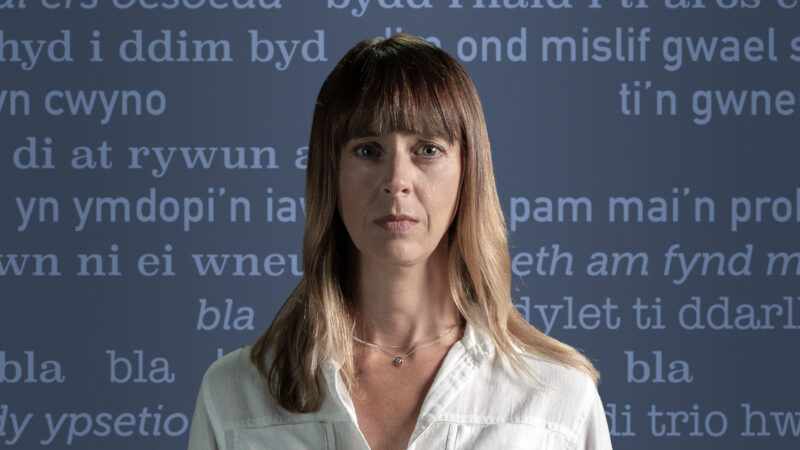Endometriosis Nurses in Wales
One of the key recommendations from the 2018 Welsh Government’s All-Wales Endometriosis Task & Finish Group was for each Health Board in Wales to appoint at least one nurse to take on the role of endometriosis nurse specialist. This was to be an entirely new role, bespoke for Wales.
Previously, and in other UK nations, endometriosis nurses were only appointed if their hospital, Health Board, or Trust, hosted a specially accredited ‘tertiary’ centre for endometriosis.
Tertiary Endometriosis Centres can be found in certain locations across the UK and overseas. The British Society for Gynaecological Endoscopy (BSGE) is responsible for their accreditation and maintains a current list of them here.
The vision the Welsh Government-funded All-Wales Endometriosis Task & Finish Group had was for a new type of endometriosis nurse. The Group recommended that these nurses work across primary and secondary care, supporting patients who weren’t currently under the care of an endometriosis specialist at a tertiary centre.
What are Tertiary Endometriosis Centres?
Tertiary Endometriosis centres mainly provide multi-disciplinary surgery to patients with very severe endometriosis for example deeply infiltrating endometriosis or rectovaginal endometriosis where the disease has affected the bladder or bowel or endometriosis outside of the pelvis. For example in rarer instances, endometriosis can be found in locations such as lungs, diaphragm.
Tertiary Endometriosis Centres are not separate buildings but are usually based in general hospitals’ gynaecology departments. They differ to usual gynaecology services in secondary care because they are made up of clinicians who have specialised in the treatment of complex endometriosis.
The centres bring together healthcare professionals from different disciplines, including urologists, colorectal surgeons, pain management, pelvic physiotherapy, and a clinical nurse specialist (often shortened to ‘CNS’). The CNS is a key part of the multi-disciplinary team. In fact, centres can only be accredited if they appoint a CNS.
The Clinical Nurse Specialist or CNS in a tertiary endometriosis centre provides a different service to those the All-Wales Endometriosis Task & Finish Group wanted to see across Wales’s health boards’ gynaecology departments.
In a Tertiary Endometriosis Centre, the Clinical Nurse Specialist will:
- Act as a point of contact between the patient and the specialist team
- Liaise directly with patients using the specialist service and provide them with support in the management of their condition
- Usually be responsible for carrying out an initial assessment of your needs. These appointments will take place when you first visit the specialist centre as an outpatient.
- Let the specialist team know what your needs are so that they are prepared when you come for your operation.
- Provide you with information and advice
- Complete Quality of Life questionnaires with you at regular intervals
- Carry out a follow-up appointment with you 6 months after your surgery, should you wish to have one.
Outside of Tertiary Endometriosis Centres, in Wales
In 2018, the Welsh Government’s Women’s Health Implementation Group (WHIG) was asked to deliver on the All-Wales Endometriosis Task & Finish Group’s recommendations, one of which was for there to be endometriosis nurses outside of tertiary centres.
The WHIG provided funding for each Health Board in Wales to recruit the equivalent of one endometriosis nurse each (two in North Wales due to the size of the area and number of patients in it).
In 2021, the Endometriosis Clinical Nurse Specialists (CNSs) in Wales were appointed and, in 2022, they were awarded the Welsh Pharmacy Award for Developments in Female Health, in recognition of their role in improving access to services for girls and women.
Wales’s endometriosis nurses recognise that this is a common but often neglected condition. They appreciate that it can sometimes be complex to manage and affect all aspects of a woman’s life. They are all working towards providing direct care and support for those affected by endometriosis and adenomyosis.
Depending on the health board, the endometriosis nurses might have to help patients access and navigate many different services, including the GP, gynaecology and other secondary care consultants, pelvic physiotherapy, pelvic pain management, fertility services, and the menopause clinic, as well as offer some form of psychological support.
Work is ongoing to ensure that the endometriosis nurses in Wales assist with the continuing professional development (CPD) of GPs and other primary care staff. This might include helping them to improve their understanding of how endometriosis can present, what can be done better to support patients, and the development of care pathways in line with NICE guidance.
In Wales, the Clinical Nurse Specialists Outside of Tertiary Endometriosis Centres will:
- Be a point of contact and support for patients struggling with the symptoms of endometriosis
- Either be able to prescribe medication themselves or advise another healthcare professional with prescribing authority, such as your GP, to write out the prescription for you
- Signpost and refer patients to both surgical and non-surgical management of the condition
- Assist in the education of both GPs and practice nurses.
As this a new type of role, Wales’s endometriosis nurses have had to undertake a range of training to ensure they can provide the best possible service to the patients in their area. This might mean that there are currently differences in the ways that the endometriosis nurse service is accessed in each Health Board.
How to find out more about your Health Board’s Endometriosis Nurse Service
For more information about how to access the endometriosis nurse service in your area, you should contact your Health Board’s gynaecology department.
You can also visit your Health Board’s website for information about endometriosis care in your area:
